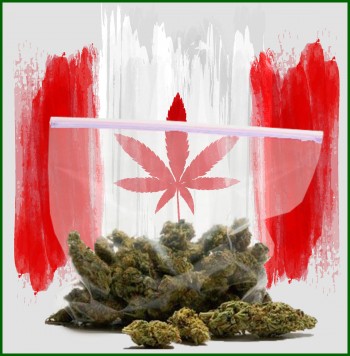
Decentralizing Divinity: The Fight to Preserve Our Entheogenic Heritage and Safeguard the Psychedelic Renaissance
Amidst the dawn of a new psychedelic age, the struggle for the soul of our entheogenic heritage hangs in the balance. As powerful forces vie for control, the question remains: will we unite to preserve our sacred birthright, or succumb to a synthetic nightmare that undermines our very essence as sentient beings?
In the intricate dance of life, humanity and psychedelics have long been partners, moving in harmony with the natural rhythm of the universe. This sacred journey, an intrinsic part of our collective birthright, weaves the threads of consciousness and self-discovery into a vibrant tapestry of existence. As sentient beings upon this Earth, our essence is inextricably linked to the very planet we inhabit. When we embark on the mind-expanding voyages that psychedelics afford us, we are not merely indulging in a fleeting experience; we are reconnecting with our primal roots.
To make psychedelics illegal, substances that have coexisted with us since time immemorial, is to declare our own essence illicit. The Earth itself is our mother, our source, and the wellspring of all that we are. To criminalize the natural bounty she provides is to deny our own identity and sever the bond we share with the cosmos. In the unfolding story of our existence, the path of psychedelics is a vital chapter, one that leads us to a deeper understanding of our place in this grand celestial dance.
A Flicker of a Revolution, an Ember of Hope
In an inexplicable turn of events, we, the children of Earth, have come to entrap ourselves in our own self-woven webs, the fine threads of which we call "government." Through this peculiar construct, we have taken the very essence of our planet, divided it, and assumed the role of dominators, exerting control over our own kind.
The 1960s were a time of great promise, a flickering ember of a revolution that seemed poised to ignite the world. Visionaries like Leary, Das, Watts, and McKenna emerged as torchbearers, shaping the Western world in ways still not fully comprehended. These trailblazers sowed the seeds of freedom deep within the collective psyche, nurturing our inherent rights to express, create, and simply be ourselves, without constraint.
Their groundbreaking work laid the foundations for the eventual acceptance and legalization of cannabis, despite the heavy hand of government intervention through the Controlled Substances Act and the War on Drugs. Astonishingly, even under the immense pressure of this governmental force – Earth masquerading as something altogether alien – we now witness the resurgence of psychedelics, a new dawn on the horizon.
But this nascent psychedelic renaissance is not without its lurking shadows. Among the greatest threats to this burgeoning revolution is Big Pharma, the behemoth that has fixed its gaze upon these ancient, sacred substances. Should we fail to curtail their influence, the long-awaited renaissance could devolve into a synthetic nightmare, wrought upon humanity by the very hands that once sought to heal.
The revival of interest in psychedelic research and therapy is a double-edged sword.
On one hand, it brings renewed attention to the profound healing potential of these substances, revealing their capacity to treat a wide array of mental health disorders, from PTSD to depression.
But with such attention comes the risk of exploitation, as pharmaceutical companies, driven by profit and hungry for control, seek to commodify and capitalize on these powerful tools of consciousness.
The danger lies in the potential for these corporations to bastardize these sacred substances, to strip them of their essential connection to nature, and transform them into sterile, synthetic compounds devoid of soul.
This metamorphosis would not only sever the bond between humanity and Earth but could also usher in an era of unforeseen consequences, as we meddle with the delicate balance of our own minds.
To preserve the sanctity of psychedelics and protect their role in our collective journey, we must demand decentralization. We must resist the urge to relinquish control to monolithic entities, to offer up our very essence as fodder for their insatiable appetites.
In the fight for our minds and souls, we must assert our autonomy and reclaim our birthright as sentient beings, connected to the Earth and the cosmos beyond.
This doesn’t mean we shouldn’t have pharmaceutical research done
It is crucial to note that pharmaceutical research can indeed be beneficial to our understanding of psychedelics. In fact, such research is more than welcome. We need cutting-edge science to delve into the depths of these compounds and investigate their interactions with our psyche. The integration of artificial intelligence could even unlock the secrets of consciousness or stimulate cross-disciplinary innovations that reshape our ways of thinking.
That being said, we must not grant the pharmaceutical industry exclusive dominion over these powerful substances. By relinquishing our control and allowing them to monopolize psychedelics, we risk eradicating our role in the unfolding narrative of these entheogens.
Pharmaceutical corporations and government regulatory bodies have given us little reason to trust them. Here are three real-world examples that illustrate their shortcomings and betrayals:
-
The opioid crisis, largely fueled by Purdue Pharma's aggressive and misleading marketing of OxyContin, has led to widespread addiction, countless overdoses, and devastating loss of life.
-
The approval of thalidomide in the 1950s and 1960s resulted in tragic birth defects due to insufficient testing and inadequate regulations.
-
The revolving door between government regulatory agencies and the pharmaceutical industry, as seen with the appointment of former Monsanto executive Michael Taylor to the FDA, raises concerns about conflicts of interest and the prioritization of corporate interests over public health.
These examples (and there are MANY more) highlight the necessity of wresting control from those who would exploit drugs for profit or self-interest. It is this understanding that underpins my passionate advocacy for nullifying the Controlled Substances Act and decentralizing the power over these substances.
Psychedelics and other entheogens hold a unique and vital place in our shared human experience. To preserve their sanctity and ensure they remain accessible to all, we must champion a future in which these substances are free from the clutches of corporate and governmental control.
Can we find a balance? I think so!
Recognizing the use of entheogens as a fundamental human right is of paramount importance. These substances have long been entwined with our collective ethos, inspiring religions, philosophies, and ideas across cultures and throughout history. To safeguard this rich heritage, we must find a harmonious balance between individual freedom and corporate involvement.
The first step toward achieving this equilibrium is to reach a global consensus that entheogens are indeed a human right. Every consenting adult should have the autonomy to decide what they do with their own bodies. Anything less than this would undermine the notion of personal sovereignty, relegating individuals to a state of servitude.
With this understanding, we can shift our perspective on anti-drug policies, recognizing them as violations of our inalienable rights. This shift would necessitate a massive restructuring of the way we approach the use and distribution of these substances.
We must advocate for the availability and free trade of entheogens (excluding those on the endangered species list) among individuals and small operations. Drawing inspiration from the proposed two-tier cannabis society—one tier for local commerce and another for national and international commerce—we can envision a similar system for entheogens.
Clubs, collectives, and small cultivators should have access to raw plant materials, fungi, roots, and the like, and should be allowed to process these entheogens into consumable forms such as drinks, food, and extracts. Meanwhile, pharmaceutical companies can focus on large-scale production and the development of medicines for those who wish to reap the benefits of psychedelics without engaging in the full psychedelic experience—a demographic that far exceeds the number of active psychonauts.
A harmonious coexistence between individuals and large corporations is possible, but it requires us to stand up and demand our rightful share of the psychedelic landscape. If we do not assert our rights, we risk falling prey to the whims of profit-driven enterprises, which may exploit our vulnerabilities and utilize the government to force compliance.
In this era of shifting perspectives and renewed interest in the world of entheogens, we have a unique opportunity to reshape the future of psychedelics. It is our duty to ensure that this future upholds the sanctity of these substances and honors the profound role they have played in our collective human journey.
From the Joe Rogan Experience interview with Dr. Andrew Huberman, a quote that emphasizes the importance of acknowledging cultural implications in the conversation around psychedelics is:
"The classic psychedelics community isn't going to like that; they're like, 'No, this is plant medicine; it's got a hundred thousand year history or more, indigenous people, etc.' Academia and Pharma don't care about that."
This quote highlights the need for us, as individuals and as a society, to ensure that the cultural significance of psychedelics remains an integral part of the conversation. While the scientific community and pharmaceutical industry may primarily focus on the potential profits and clinical applications, we must not forget the rich historical and cultural context in which these substances have played a pivotal role. By keeping this perspective at the forefront, we can work to preserve the sanctity of these entheogens and ensure that their use remains accessible and respectful of the traditions from which they emerged.
The Sticky Bottom Line
In conclusion, our shared human journey has been deeply intertwined with the use of entheogens, powerful substances that have played an essential role in shaping our cultures, religions, and philosophies. As we stand on the cusp of a new psychedelic renaissance, we must not let our collective heritage be overshadowed by the interests of pharmaceutical corporations or the narrow focus of scientific research.
The resurgence of interest in psychedelics offers a unique opportunity to redefine our relationship with these substances. We must strive for a harmonious balance that upholds individual autonomy and respects the cultural significance of entheogenic practices. By establishing a two-tiered system that allows for local commerce and individual access while still enabling large-scale research and production, we can create a future that honors the sacredness of these substances.
To achieve this future, we must come together as a global society and recognize the use of entheogens as a fundamental human right. This understanding would necessitate a massive restructuring of our current approach to drug policy, with the aim of decentralizing control and ensuring the availability of these substances to all who seek them.
Now is the time for us to take a stand. If you believe in the sanctity of entheogenic practices and the importance of preserving our collective heritage, join us in advocating for the protection of these rights. Demand a more compassionate and equitable approach to the use and distribution of psychedelics, one that safeguards the cultural and spiritual significance of these substances for generations to come. Together, we can create a future where our connection with entheogens remains unbroken and their profound role in our shared human experience is honored and respected.







